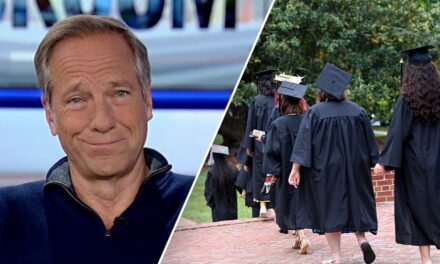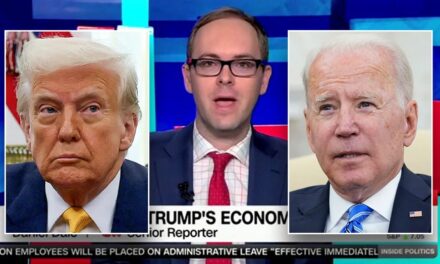In a recent address, the President of Harvard University, Claudine Gay, emphasized the need for the prestigious institution to confront the perceived imbalance in political diversity among its student body and faculty. At the heart of her message was a clear acknowledgment that the prevailing lack of conservative voices on campus has raised concerns about the overall ideological landscape of one of the world’s most renowned universities.
During her inauguration speech, President Gay expressed her commitment to fostering a more pluralistic environment, stressing that the absence of a diverse range of political perspectives could undermine the university’s core mission of academic exploration and intellectual growth. She pointed out that the richer the tapestry of viewpoints presented within academic discourse, the better prepared students will be to engage with the real world, where diverse opinions abound.
President Gay’s comments emerged in the wake of ongoing debates surrounding academic freedom and ideological diversity within elite colleges and universities across the nation. Critics have long argued that institutions like Harvard have become increasingly tilted toward liberal ideologies, leaving conservative students feeling marginalized. According to a 2023 survey conducted by the Foundation for Individual Rights and Expression (FIRE), a significant number of conservative students reported feeling uncomfortable sharing their views in classroom discussions, citing fears of backlash or ostracism from peers and faculty.
The implications of such an academic environment are significant. A lack of ideological diversity can stifle open debate, limit the intellectual development of students, and create echo chambers where only certain viewpoints are validated. As President Gay noted, “To be an educated person is to be someone who can engage thoughtfully with others whose beliefs may differ from your own.” This ethos underpins Harvard’s commitment to fostering an inclusive and rigorous educational atmosphere.
In response to the growing concern, Harvard plans to initiate several measures aimed at improving political diversity on campus. Among the proposed actions is the establishment of fellowships specifically designed to attract faculty members who hold conservative viewpoints. Harvard officials believe that by bringing in scholars who contribute diverse perspectives, they can enrich the learning experience for all students.
Additionally, President Gay announced the creation of a task force that will focus on examining existing policies and practices that may inadvertently discourage conservative participation on campus. This task force will engage with students and faculty to identify barriers and develop strategies to promote an environment where all viewpoints can be freely expressed and debated.
In her address, Gay also hinted at the importance of student involvement in this endeavor. “Our students are not passive recipients of knowledge; they are active participants in shaping the campus culture,” she stated. The university is set to encourage student-led initiatives that promote dialogue and understanding between individuals with differing political beliefs, fostering a greater sense of community and respect on campus.
The challenges surrounding political diversity are not unique to Harvard; they reflect a broader national trend observed in many higher education institutions. Studies have found that conservative professors are often underrepresented in academic faculties, particularly in the humanities and social sciences, which may play a role in influencing the political climate on campus. Critics assert that this imbalance can foster an atmosphere where differing opinions are not only discredited but actively discouraged.
To further address these issues, Harvard is engaging with external partners and organizations that specialize in promoting ideological diversity in academia. By collaborating with these groups, the university aims to develop best practices and policies that can be adopted across various departments while also exploring new approaches to curriculum design that emphasize critical thinking and debate.
Furthermore, President Gay’s initiative has garnered both support and skepticism from various corners. Supporters argue that her leadership represents a vital step toward rectifying disparities in the representation of conservative ideas, while critics caution against tokenism that could dilute the university’s commitment to academic rigor. It’s crucial, they argue, that any effort to introduce more conservative viewpoints does not compromise the quality of education or scholarly inquiry.
As discussions around enhancing ideological diversity continue, Harvard’s administration faces the challenge of navigating these complexities while remaining committed to its core educational values. Emphasizing the importance of free expression, President Gay reiterated, “We must cultivate a culture that values dissent and debate, where the clash of ideas is not seen as a threat, but as a catalyst for discovery.”
The initiative also sparks a broader conversation about the responsibilities of academic institutions in today’s politically charged climate. As pressure mounts on universities to become more inclusive, the challenge lies in balancing this inclusivity with the adherence to academic rigor, ensuring that all voices have a seat at the table without compromising intellectual integrity.
Moreover, Harvard’s approach may set a precedent for other universities facing similar dilemmas. As some institutions grapple with their own accusations of bias and homogeneity, the strategies that emerge from Harvard’s efforts could serve as a guiding model. Engaging stakeholders across the spectrum to ensure diverse perspectives can contribute to a more vibrant academic community could resonate well beyond Cambridge, Massachusetts.
In conclusion, the call from Harvard’s President Claudine Gay to address the imbalance of conservative views on campus marks a significant moment in higher education. With the intention of enhancing political diversity and cultivating an academic culture rooted in open discourse, Harvard seeks to position itself as a leader in fostering an inclusive environment where all ideas, regardless of their political leanings, can thrive. As the country continues to grapple with divisions and discourse, Harvard’s approach may serve as a bellwether for the future of higher education, emphasizing the need for a marketplace of ideas where diverse perspectives are not only welcomed but celebrated.
































